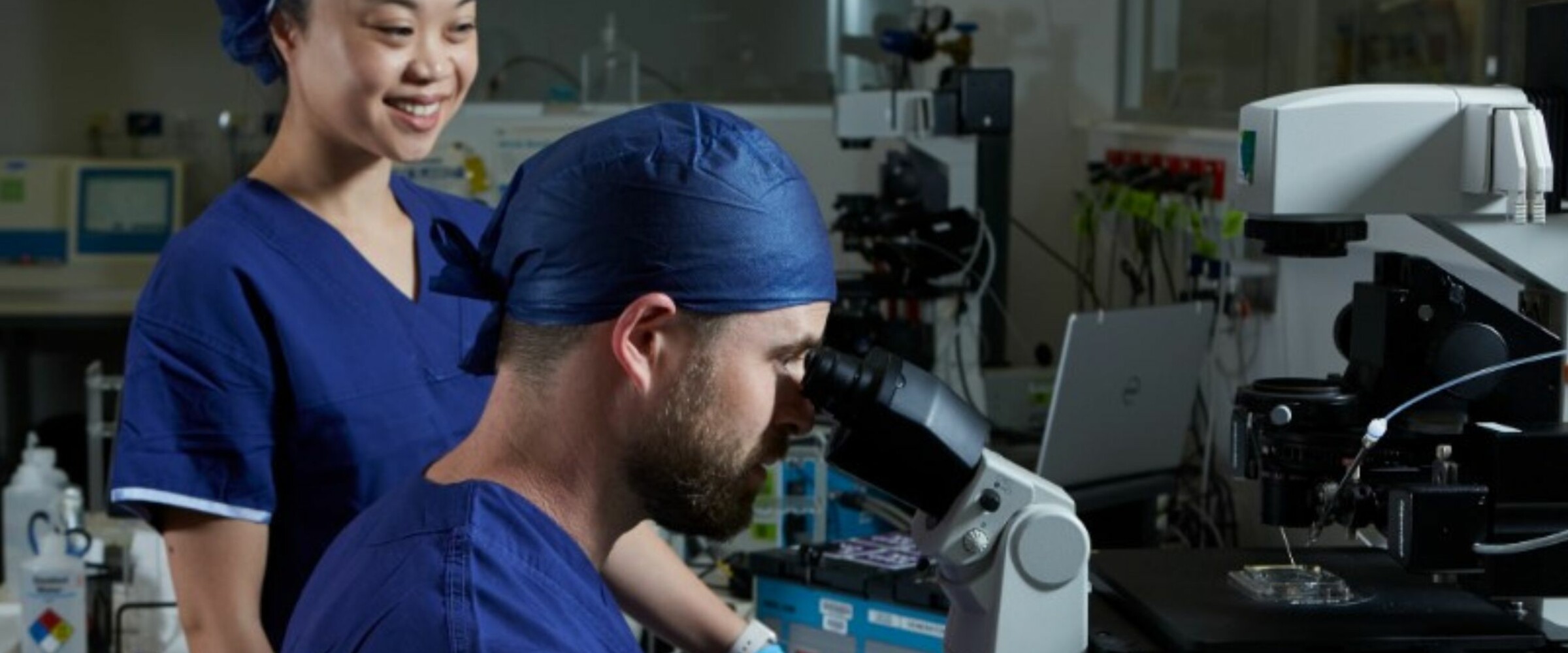
A deeper look at sperm health using DNA Fragmentation
When couples have trouble getting pregnant, understanding the cause is essential for successful treatment. Traditional semen analysis checks sperm count, movement, and shape, but it doesn't give a complete picture of sperm health. Dr. Liow Swee Lian, our scientific director, explains how DNA fragmentation testing reveals more about the sperm's DNA to provide overall sperm health insights that will help improve fertility outcomes.
Why is DNA Fragmentation Testing Necessary?
DNA fragmentation simply means that the DNA inside sperm cells is broken or damaged. Unlike traditional semen analysis (SA), which examines the outside of sperm, DNA fragmentation testing gives a better understanding of sperm health.
“Compared with the standard semen analysis, sperm DNA fragmentation testing is a qualitative assessment of the sperm while SA is a quantitative assessment of the semen sample, looking at the concentration, motility and morphology,” Dr Liow Swee Lian explained.
Motility refers to how well the sperm can move to reach the egg in the female reproductive tract, while morphology refers to the shape and size of a sperm cell as seen under a microscope.
High levels of DNA fragmentation can make it hard for sperm to fertilize an egg and can cause problems with embryo development and pregnancy success.
“The role of sperm is not only just to fertilise an egg but more importantly, it has a major impact on the outcome of pregnancy especially in the first 3 months of pregnancy,” he added. “Embryos develop from eggs that are fertilized by sperm, which have high DNA fragmentation or damage can result in early pregnancy loss or poor-quality embryos that fail to implant.”
Dr Liow recommended that sperm DNA fragmentation testing be performed together with SA to complete an assessment of sperm quality.
The results of the sperm DNA testing can help the fertility specialist recommend appropriate treatments to improve the male's sperm quality. These might include lifestyle changes, antioxidant therapy, or advanced techniques like Intracytoplasmic morphologically selected sperm injection (IMSI), in which healthy sperm are selected under high magnification x1200 to improve the chance of a positive outcome.
The Sperm Chromatin Dispersion (SCD) Assay is a DNA fragmentation test available at Virtus Fertility Centre's Andrology Lab. This test uses a special dye to stain the DNA in sperm cells. Damaged DNA glows differently under a specific microscope. The SCD assay provides detailed information about sperm DNA integrity and is widely used for assessing DNA fragmentation.
Men’s fertility health has a biological clock
Age affects all cells, including sperm, and they have less efficient DNA repair mechanisms[1].
Their bodies produce more harmful molecules called reactive oxygen species (ROS). These molecules can damage sperm DNA, and older men have fewer antioxidants to protect their sperm from this damage.
Beyond age, Dr Liow said that overall physical health and lifestyle could also produce DNA fragmentation. Over time, men are exposed to pollutants, heat[2], radiation, and lifestyle factors like smoking and poor diet, which can increase the likelihood of DNA fragmentation.
Unexplained infertility, miscarriages, or failed IVF cycles can be very frustrating for couples. High levels of DNA fragmentation might be the cause. “Clinical history of recurrent miscarriages can be caused by sperm DNA damage/quality,” Dr Liow said.
How it helps to better IVF clinical / pregnancy outcomes
“From the results of the sperm DNA testing, appropriate treatments can be rendered to the male by the fertility specialist to improve his sperm quality before an IVF treatment,” he said.
DNA fragmentation testing enables fertility specialists to develop personalised treatment plans tailored to each patient’s reproductive health. Additionally, it helps IVF laboratories identify and select the healthiest sperm for fertilization, resulting in higher-quality embryos and improved IVF success rates.
Most importantly, addressing and treating sperm DNA fragmentation can reduce the risk of pregnancy loss and significantly increase the likelihood of carrying a pregnancy to term.
Optimizing Pregnancy Chances
DNA fragmentation testing in modern fertility assessments explores the genetic integrity of sperm and offers more insights that traditional semen analysis may miss. Understanding and addressing DNA fragmentation can lead to improved fertility outcomes, higher IVF success rates, and reduced risk of miscarriage. As Dr. Liow emphasizes, combining DNA fragmentation testing with standard semen analysis ensures a comprehensive evaluation of sperm health. This approach not only helps in identifying hidden fertility issues but also guides effective treatments to address male reproductive health, optimising the chances of a successful pregnancy.
[1] Gonzalez DC, Ory J, Blachman-Braun R, Nackeeran S, Best JC, Ramasamy R. Advanced Paternal Age and Sperm DNA Fragmentation: A Systematic Review. World J Mens Health. 2022 Jan;40(1):104-115. doi: 10.5534/wjmh.200195. Epub 2021 Apr 16. PMID: 33987998; PMCID: PMC8761235. https://pmc.ncbi.nlm.nih.gov/articles/PMC8761235/
[2] https://www.channelnewsasia.com/singapore/extreme-heat-hot-weather-singapore-sperm-count-concentration-construction-sector-4205366
